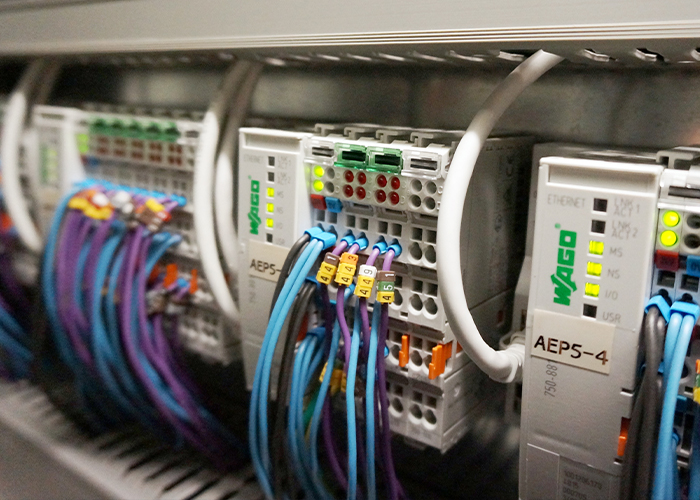Programmable Logic Controller (PLC) and Supervisory Control and Data Acquisition (SCADA) systems are at the heart of industrial automation, and learning to manage these systems can open doors to a thriving career in various engineering sectors. PLC-SCADA training equips individuals with the foundational knowledge and practical skills to oversee complex automation processes used across industries, from manufacturing and power generation to chemical processing and water treatment. With the world increasingly moving toward automation to optimize operations and enhance productivity, understanding these critical technologies is becoming essential for engineers, technicians, and professionals involved in industrial operations.
This training program introduces participants to the foundational principles of cybersecurity specific to OT/ICS environments, covering how OT and IT differ and why traditional IT security methods aren’t always suitable in industrial contexts. From an overview of the unique challenges and vulnerabilities that OT systems face to an understanding of the key protocols and technologies used, this course provides essential knowledge to anyone involved in OT security.

PLC SCADA systems are robust, purpose-built controllers used in automation to control machines and processes by continuously monitoring inputs and outputs and making logic-based decisions. Unlike traditional control systems, PLCs are designed to withstand industrial conditions, making them ideal for harsh environments. SCADA, on the other hand, is a software-based control system that helps monitor and control large-scale industrial systems remotely. Together, PLC and SCADA technologies create a seamless integration of hardware and software, allowing for centralized control, real-time monitoring, and enhanced operational efficiency across complex systems.
Training Mode & Duration
| Training Mode | Online | Offline |
| Duration | 50 HRS |
One of the biggest advantages of pursuing PLC-SCADA training is that it offers a blend of theoretical knowledge and hands-on practical experience. Training programs are typically designed to cater to a variety of learners, from beginners to advanced professionals, and cover essential topics such as programming, hardware configuration, troubleshooting, and network communication. Learners can expect to delve into ladder logic, human-machine interfaces (HMI), and communication protocols, as well as practical exercises that simulate real-world scenarios. By using industry-grade equipment and software, participants gain valuable experience that prepares them to tackle challenges in the field confidently.
In the modern industrial landscape, where downtime can lead to significant financial losses, skilled professionals with expertise in PLC and SCADA systems are in high demand. By automating processes, companies can reduce human error, increase production speed, and improve safety standards. For aspiring engineers, technicians, or anyone looking to advance their careers in automation, PLC-SCADA training is a strategic investment. This training doesn’t just offer technical skills; it also builds critical thinking, problem-solving, and decision-making abilities that are highly valued in industrial environments.
Moreover, as Industry 4.0 and the Industrial Internet of Things (IIoT) gain momentum, PLC and SCADA systems are evolving to integrate with newer, digitalized technologies. PLC-SCADA training can give learners insight into this ongoing evolution, preparing them for the next generation of industrial automation. Topics such as remote monitoring, data analysis, and cloud integration are often incorporated into advanced training modules, making it possible for professionals to stay updated on the latest trends and practices.
In summary, PLC-SCADA training is a comprehensive educational pathway that empowers professionals to enhance operational efficiencies within various industries. By gaining expertise in programming, troubleshooting, and system integration, individuals can significantly elevate their careers, contributing to the overall growth and innovation in the industrial sector. With the rapid advancement of technology, a solid foundation in PLC and SCADA can be a gateway to an exciting, lucrative, and future-proof career in automation and control systems.
Once you complete the training you should be able to:
Gain deep knowledge of PLC hardware, architecture, and programming languages (Ladder Logic, Function Block, etc.) for designing automation systems.
Develop and troubleshoot PLC programs, including timers, counters, and advanced functions, with hands-on experience in configuring and deploying PLC systems.
Learn how to design and develop SCADA systems, including HMI interfaces, data acquisition, alarm management, and real-time monitoring for effective process control.
Understand and apply industrial communication protocols (e.g., Modbus, Ethernet, Profibus) to establish seamless communication between PLCs and SCADA systems.
Apply PLC and SCADA skills to real-world scenarios and case studies in diverse industries like manufacturing, oil & gas, and utilities for process automation.
Key Topics Covered
If you are into one of the following roles or working with these technologies, you can join this course.
Key Benefits

| Course Fee | On Demand |
| Exam & Certificate | On Demand |
| Total | N/A |
You can make payment via Internet banking, GPay or Paytm depending on your preferred mode of payment.
Contact +91-93118-05027 for more details or any kind of assistance.
Register